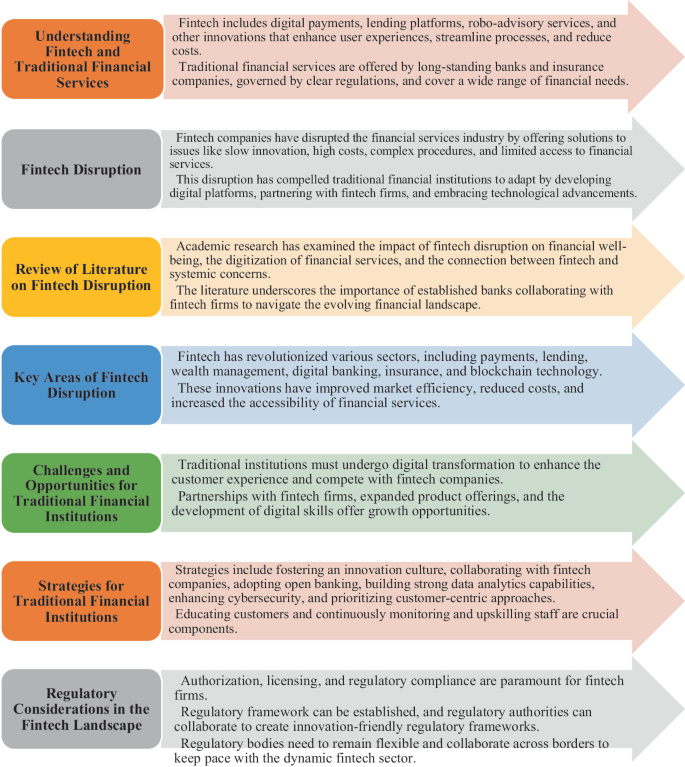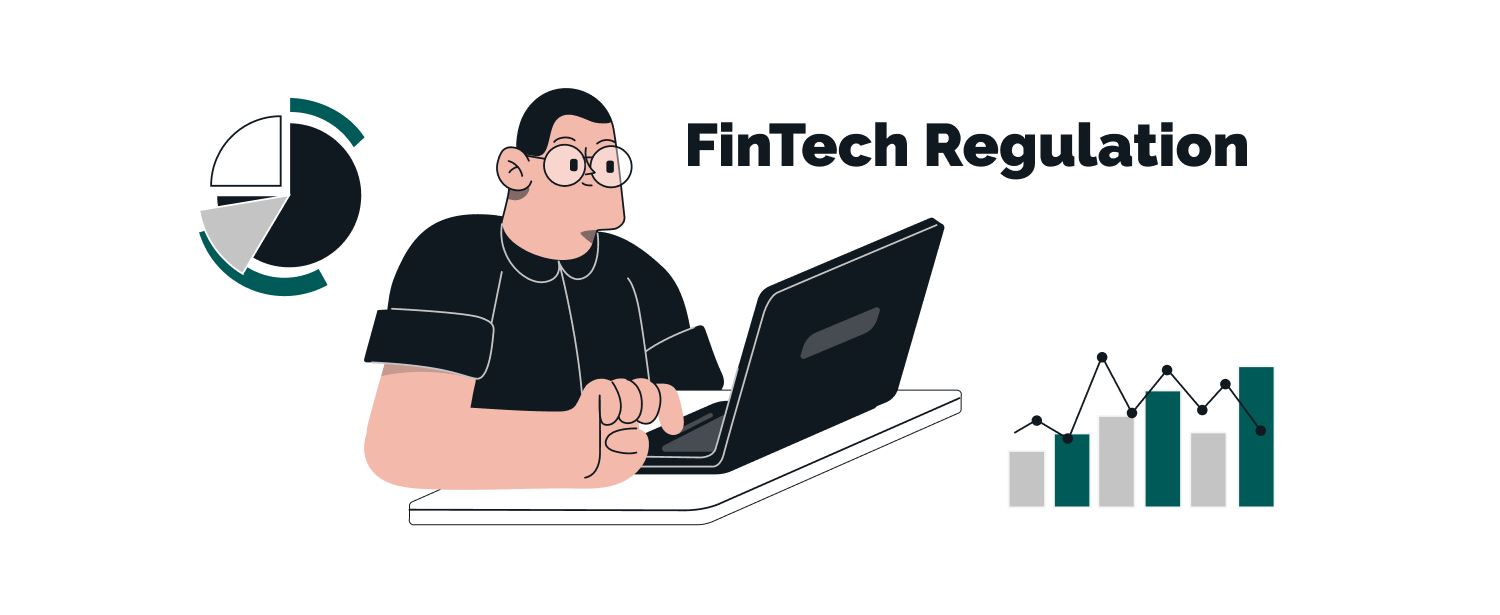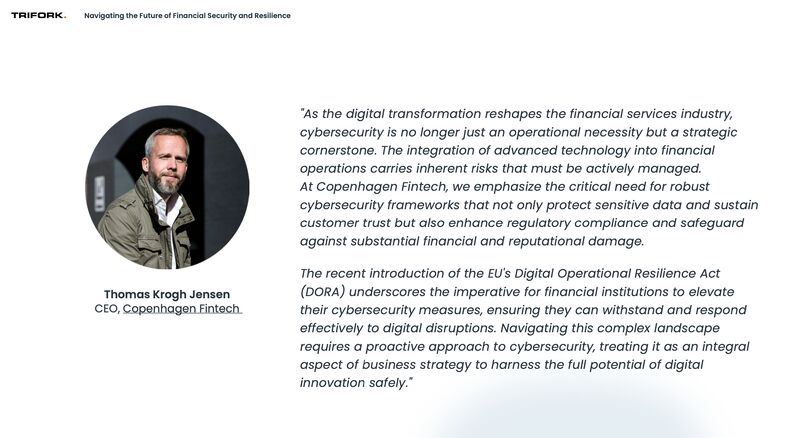Fintech regulations encompass a range of compliance requirements designed to ensure financial stability and consumer protection. Understanding these regulations is crucial for navigating the rapidly evolving fintech landscape.
The fintech industry has revolutionized financial services, introducing innovations that enhance convenience and accessibility. As this sector grows, so does the complexity of its regulatory environment. Governments and regulatory bodies work to establish frameworks that balance innovation with consumer protection and financial stability.
Compliance with regulations such as KYC (Know Your Customer) and AML (Anti-Money Laundering) is vital for fintech companies. These regulations help prevent fraud and money laundering while fostering trust in digital financial services. By understanding the regulatory landscape, fintech firms can better navigate challenges and seize opportunities for growth in this dynamic market.
The Rise Of Fintech
The fintech industry has transformed the financial landscape rapidly. Innovative technologies disrupt traditional banking. This growth offers new opportunities and challenges. Understanding fintech regulations is essential for navigating this complex environment.
Global Impact
Fintech’s influence extends worldwide. It connects millions to financial services. Here are key aspects of its global impact:
- Accessibility: Fintech makes banking easier for everyone.
- Cost-Effectiveness: Lower fees attract new customers.
- Speed: Transactions happen in seconds.
- Innovation: New products cater to diverse needs.
Countries like the U.S., China, and India lead fintech adoption. These nations embrace technology to enhance financial inclusion. This trend helps unbanked populations access services.
Technological Innovations
Technological advancements drive the fintech boom. These innovations reshape how consumers interact with money. Key technologies include:
| Technology | Description |
|---|---|
| Blockchain | A secure way to record transactions. |
| Artificial Intelligence | Enhances customer service through chatbots. |
| Mobile Payments | Allows easy payments via smartphones. |
| Big Data | Analyzes customer behavior for better services. |
These technologies improve efficiency and security. They also help companies comply with regulations. Fintech firms must adapt quickly to stay competitive.

Credit: www.slideserve.com
Key Fintech Regulations
The fintech industry is rapidly evolving, bringing new challenges and opportunities. Regulations play a crucial role in ensuring stability and trust. Understanding key fintech regulations is essential for businesses in this space. Here, we explore two significant regulations: KYC and AML compliance, and licensing requirements.
Kyc And Aml Compliance
KYC (Know Your Customer) and AML (Anti-Money Laundering) regulations are vital. They help prevent fraud and illegal activities. Fintech companies must verify their customers’ identities. This ensures that they are not involved in money laundering or terrorist financing.
- KYC Processes:
- Collect customer identification documents.
- Verify the authenticity of documents.
- Monitor transactions for suspicious activity.
- AML Strategies:
- Implement risk-based approaches.
- Conduct regular audits and reviews.
- Train staff on compliance protocols.
Non-compliance can lead to serious penalties. Fines can be substantial and damage a company’s reputation. Therefore, adhering to these regulations is not optional but essential.
Licensing Requirements
Licensing is another critical aspect of fintech regulations. Different regions have specific requirements. Companies must obtain the necessary licenses to operate legally.
| Region | Licensing Authority | License Type |
|---|---|---|
| United States | Financial Crimes Enforcement Network (FinCEN) | Money Services Business License |
| European Union | European Central Bank (ECB) | Payment Institution License |
| United Kingdom | Financial Conduct Authority (FCA) | Electronic Money License |
Without the right licenses, fintech firms risk legal action. This can halt operations and lead to significant financial losses. Compliance with licensing requirements builds trust with customers and regulators.
Staying informed about fintech regulations is crucial. It enables businesses to navigate the complex landscape of financial innovation successfully.
Challenges In Fintech Regulation
The world of fintech is evolving rapidly. This evolution brings unique challenges in regulation. Regulatory bodies strive to keep pace with innovation. Balancing innovation with security is crucial. Understanding international regulatory variances is also important.
Balancing Innovation And Security
Fintech companies drive financial innovation. They create new products and services that can change lives. However, this innovation can pose risks. Regulatory bodies must ensure consumer protection and market stability. Here are some key challenges:
- Compliance Costs: Meeting regulatory requirements can be expensive.
- Data Security: Protecting consumer data is vital.
- Regulatory Uncertainty: Constantly changing regulations create confusion.
Finding a balance is essential. Regulators need to foster innovation without compromising security. A collaborative approach can help. This may involve:
- Creating regulatory sandboxes for testing.
- Encouraging open dialogues between fintechs and regulators.
- Implementing flexible regulations that adapt to change.
International Regulatory Variances
Fintech operates globally, but regulations differ by region. These variances can complicate compliance for companies. Below is a summary of key differences:
| Region | Regulatory Focus | Key Challenges |
|---|---|---|
| United States | Sector-specific regulations | Complexity of multiple regulators |
| European Union | Unified regulations | Implementation across member states |
| Asia | Diverse regulatory frameworks | Varied levels of enforcement |
Understanding these variances is crucial for success. Companies must navigate different laws and practices. A well-informed strategy can mitigate risks and enhance compliance.

Credit: link.springer.com
Regulatory Sandbox
The Regulatory Sandbox is a unique framework for financial technology. It allows companies to test new products in a controlled environment. This approach helps reduce risks while encouraging innovation. Sandbox programs support startups and established firms alike. They aim to create safer financial services.
Concept And Purpose
The concept of a regulatory sandbox is simple yet powerful. It provides a safe space for fintech firms to experiment. Here are key points about its purpose:
- Test Innovations: Companies can trial their products before full launch.
- Regulatory Clarity: It helps firms understand compliance requirements.
- Consumer Protection: Safeguards customers while new products are developed.
- Encourage Competition: It fosters innovation and competition in the market.
The sandbox approach helps regulators monitor emerging technologies. This method enables them to adapt regulations as needed.
Global Examples
Many countries have adopted the regulatory sandbox model. Here are some notable examples:
| Country | Sandbox Program | Year Launched |
|---|---|---|
| United Kingdom | FCA Sandbox | 2016 |
| Singapore | MAS Sandbox | 2016 |
| Australia | ASIC Sandbox | 2016 |
| United States | Innovation Hub | 2016 |
These examples show how different regions embrace innovation. They focus on consumer protection and financial stability.
Each sandbox program aims to balance innovation and regulation. They ensure that new financial technologies are safe and effective.
Fintech And Consumer Protection
Fintech has transformed how we manage our money. With this change comes the need for strong consumer protection. Regulations ensure that consumers’ rights are safeguarded. They also help build trust in fintech services. Understanding these regulations is crucial for both consumers and providers.
Privacy Concerns
Privacy is a top concern in the fintech world. Financial data is sensitive and needs protection. Companies collect vast amounts of personal information. This data can include:
- Name
- Email address
- Bank account details
- Transaction history
Regulations like GDPR and CCPA focus on data privacy. They give consumers control over their data. Here are key points about privacy regulations:
| Regulation | Key Feature |
|---|---|
| GDPR | Requires consent for data collection |
| CCPA | Allows consumers to opt-out of data sales |
Fintech companies must follow these regulations. Failure to comply can lead to hefty fines. Consumers should know their rights regarding data privacy.
Fraud Prevention
Fraud is a major risk in fintech. As more transactions move online, criminals find new ways to exploit weaknesses. Strong fraud prevention measures are essential.
Key strategies for fraud prevention include:
- Two-Factor Authentication: Adds an extra layer of security.
- Real-Time Monitoring: Detects suspicious activities quickly.
- AI and Machine Learning: Identifies patterns in fraudulent behavior.
Regulators require fintechs to implement these measures. This helps protect consumer funds and personal information. Consumers should always report suspicious activities to their fintech provider.

Credit: www.techmagic.co
The Role Of Regulators
Regulators play a crucial role in the world of fintech. They ensure that innovation does not compromise safety and fairness. As financial technologies evolve, regulators face unique challenges. Understanding these challenges helps fintech companies navigate their environment effectively.
Adapting To New Technologies
Fintech innovations introduce new technologies at a rapid pace. Regulators must adapt to these changes to maintain effective oversight. Here are some key areas where adaptation is essential:
- Data Privacy: New technologies collect vast amounts of personal data.
- Cybersecurity: Increased digital transactions heighten security risks.
- Digital Currencies: The rise of cryptocurrencies demands new regulations.
Regulators must stay informed about technological advancements. They need to understand how these technologies work. This knowledge helps them create relevant regulations. Regular training and workshops can aid in this process.
Collaboration With Fintech Firms
Collaboration between regulators and fintech firms fosters a better environment for innovation. This partnership can take various forms:
- Regulatory Sandboxes: These allow fintechs to test products in a controlled space.
- Stakeholder Meetings: Regular discussions help regulators understand industry challenges.
- Public Consultations: Inviting feedback ensures regulations are practical and effective.
Through collaboration, regulators can craft rules that support innovation. This approach helps protect consumers while encouraging growth.
Emerging Trends In Fintech
The fintech industry is evolving rapidly. New technologies change how we handle money. Understanding these trends is key for businesses and consumers. Regulations must adapt to this fast-paced environment. Here are two major trends shaping the future of fintech.
Blockchain And Cryptocurrency
Blockchain technology is revolutionizing the finance world. It offers secure, transparent transactions. Many companies now use blockchain for various applications. Here are some key points:
- Decentralization enhances security.
- Smart contracts automate processes.
- Cryptocurrencies enable borderless transactions.
Regulatory frameworks struggle to keep pace. Governments aim to regulate without stifling innovation. Each country has its own stance on cryptocurrency. This creates a patchwork of regulations.
| Country | Regulation Type | Status |
|---|---|---|
| USA | Secured Assets | In Progress |
| EU | MiCA Regulation | Proposed |
| China | Ban on Cryptocurrencies | Active |
Ai And Machine Learning
Artificial Intelligence (AI) and Machine Learning (ML) transform financial services. They enhance customer service and risk assessment. AI analyzes data faster than humans. This leads to better decision-making.
Here are some benefits:
- Improved fraud detection.
- Personalized customer experiences.
- Efficient loan processing.
Regulators face challenges with AI. They must ensure fairness and transparency. This is crucial to maintain consumer trust.
Future Of Fintech Regulations
The future of fintech regulations stands at a crossroads. Rapid innovation in financial technology brings new challenges and opportunities. Regulatory bodies aim to ensure consumer protection and market stability. This landscape is evolving quickly, requiring all stakeholders to stay informed.
Predictions
Experts anticipate several key trends shaping the future of fintech regulations:
- Increased Collaboration: Regulators and fintech firms will work together.
- Global Standards: Countries may adopt unified regulations.
- Focus on Cybersecurity: Enhanced measures to protect consumer data.
- Regulatory Sandboxes: More experimentation in safe environments.
- Consumer-Centric Policies: Regulations will prioritize user experience.
Preparing For Changes
Fintech companies need to stay ahead. Here are essential steps for preparation:
- Monitor Regulatory Updates: Regularly check for changes in laws.
- Engage with Authorities: Maintain open communication with regulators.
- Invest in Compliance: Allocate resources to meet regulatory requirements.
- Educate Staff: Provide training on compliance and regulations.
- Adopt Technology Solutions: Use tools to streamline compliance processes.
| Trend | Description |
|---|---|
| Increased Collaboration | Partnerships between fintechs and regulators will grow. |
| Global Standards | Efforts to harmonize regulations across borders. |
| Focus on Cybersecurity | Stronger protections against data breaches. |
| Regulatory Sandboxes | Opportunities for testing in controlled settings. |
| Consumer-Centric Policies | Emphasis on enhancing user experience. |
credit: trifork.com
Frequently Asked Questions
What Is The Financial Regulation Of Fintech?
Financial regulation of fintech involves compliance with laws like KYC (Know Your Customer) and AML (Anti-Money Laundering). These regulations aim to prevent money laundering and terrorist financing while ensuring consumer protection. Regulatory frameworks adapt to balance innovation and financial stability in the evolving fintech landscape.
What Are The Regulatory Requirements For Fintech?
Fintech companies must comply with various regulations, including KYC (Know Your Customer) and AML (Anti-Money Laundering). Licensing requirements vary by jurisdiction. Data protection laws, consumer protection regulations, and financial stability requirements also apply. Staying updated with regulatory changes is essential for compliance and operational success.
How Have Regulators Been Responding To Changes In Fintech Innovation?
Regulators respond to fintech innovation by adapting existing frameworks to new technologies. They often focus on the economic functions of innovations rather than the entities themselves. This approach aims to balance innovation with consumer protection and financial stability while fostering a supportive environment for growth.
What Are The 3 Pillars Of Fintech?
The three pillars of fintech are innovation, customer centricity, and regulatory compliance. Innovation drives technological advancements, customer centricity focuses on enhancing user experiences, and regulatory compliance ensures adherence to financial laws and standards. Together, they support sustainable growth in the fintech industry.
Conclusion
Navigating fintech regulations is crucial for success in the financial innovation landscape. Adhering to compliance ensures security and builds trust with customers. As the industry evolves, staying updated on regulatory changes will empower businesses to adapt and thrive. Embrace the challenge and foster innovation while prioritizing compliance for long-term growth.

